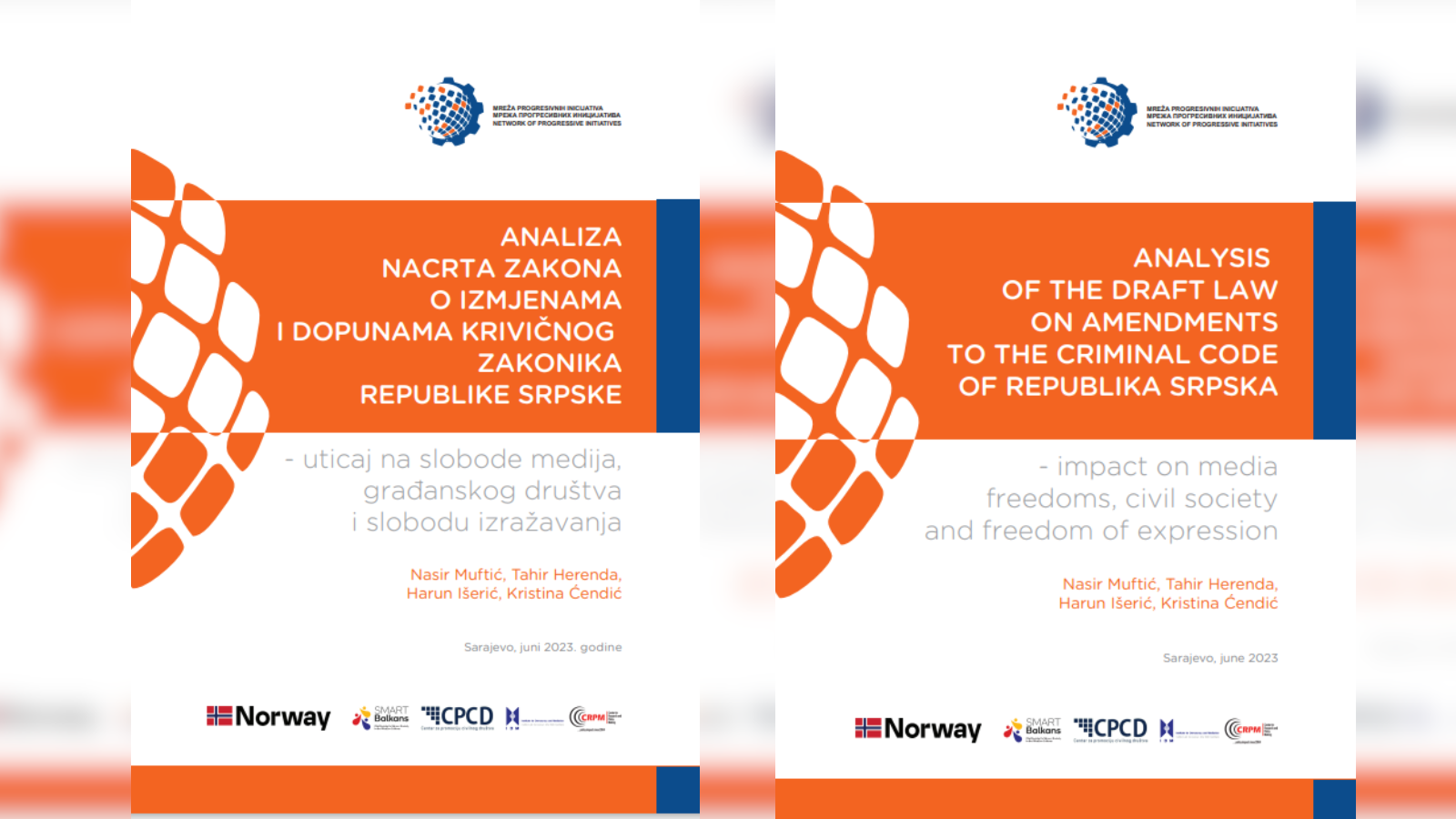At its second regular session, held on March 23, 2023, the National Assembly of the RS (NS RS) adopted the Draft Amendments to the Criminal Code of the RS, which, among other things, introduces a new chapter of criminal offenses (criminal offenses against honor and reputation) into the Criminal Code (CC of the RS) of the RS, and incriminates insult and defamation. Stating the reasons for adopting the Draft, the proponent points to the existing criminal legislation of neighboring countries and emhasises that even European Union member states have the criminal legislation that prescribes criminal offenses against honor and reputation. However, the proponent simultaneously admits that the EU tends towards decriminalization and completely ignores the practice of the European Court of Human Rights (hereinafter: ECtHR), standards developed by other Council of Europe (hereinafter: CoE) bodies, as well as the UN Human Rights Committee. Therefore, it did not give any specific reasons for the criminalization of the defamation and insult. However, these were given by the president of Republika Srpska, Milorad Dodik, who was the first to announce the criminalization, pointing out that the slander was used to discredit
the institutions of the RS, its legitimate and legally elected representatives, and to portray it as a completely disordered society that, as such, cannot exist independently. On 12 May, 2023, he announced the adoption of the Proposal for Amendments to the CC of the RS at the next session of the NS of the RS, including the incrimination of defamation and insults 5 although at that time the public discussions on the Draft had not yet been completed.
The process of re-incrimination of defamation and insult in the RS has caused negative reactions from the association of journalists, non-governmental organizations, the Institution of Human Rights Ombudsman of Bosnia and Herzegovina, CoE, EU, OSCE, UN, international community in BiH and international non-govern-mental organizations. The common feature of all reactions is the condemnation of the attempt by the public authorities in the RS to criminalize defamation and insult, that this represents a strengthening of the trend of stifling and undermining freedom of expression, independent media and non-governmental society, and ultimately that this ensures an encouraging environment for civil society, and which is an obligation of BiH from the process of European integration.
The attempt to criminalize defamation in the RS is just one of the attacks on freedom of expression by the public authorities in recent years. Let’s remember that during the COVID-19 pandemic, the authorities in the RS passed acts with an attempt to regulate fake news. OSCE pointed out that these were undermining media freedom and freedom of speech. In 2021, the NS RS incriminated the “Damage to the reputation of Republika Srpska and its peoples”, contrary to international and European standards for the protection of freedom of expression. In addition, it is necessary pressure on journalists to discover their journalistic sources. Ultimately, one should keep in mind the wider context of the atmosphere in BiH, in which attacks, threats and pressures against journalists are socially acceptable, as well as the trend of impunity for such acts. That is why the Ombudsman prepared a Special report on the status and cases of threats against journalists in Bosnia and Herzegovina, where they noted that journalists are “a frequent target of threats and political pressure”. Therefore, the attempt to criminalize defamation and insult represents the expected sequence of activities of the public authorities in the RS. Apart from the reaction and condemnation, there was no concrete legal action. For example, an opinion on the Draft could have been requested from the European Commission for Democracy through Law (Venice Commission), or from the OSCE Representative for Freedom of the Media, who could, with the power of their authority, act on the public authorities in the RS.
The SMART Balkans project within AD HOC grant line supported the preparation of the Network of Progressive initiatives Analysis, which represents one of the ways in which the non-governmental sector in BiH tries to encourage the public authorities in BiH to use the remaining pressure mechanisms so that the incrimination of defamation and insult does not occur, that is, it offers additional arguments against incrimination within the public debate on the Draft. In the first part, a brief review of the process that the legal order of BiH has undergone is offered: from criminal, civil, and re-criminal liability for defamation and insult in BiH (that is, in RS). The second part is devoted to the analysis of the compliance of the proposed criminal provisions on defamation and insult with the standards of the ECtHR, as the most authoritative body for the protection of human rights in Europe. Finally, the third part contains an overview of the standards in the field of criminal liability for defamation, which were created by the bodies of CoE, EU, OSCE, UNESCO, and elaborates on how they are relevant for the procedures of the adoption of the Draft.
The complete analysis is available HERE








